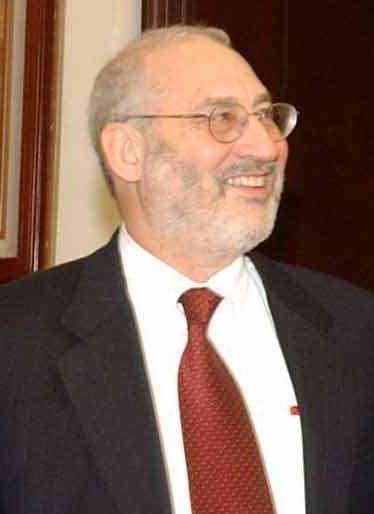Here’s an excerpt from Joseph Stiglitz’s essay (at guardian.co.uk) entitled Getting bang for your buck. 
Getting bang for your buck
Preserving financial institutions is not an end in itself, but a means to an end. It is the flow of credit that is important.
We are all Keynesians now. Even the right in the United States has joined the Keynesian camp with unbridled enthusiasm and on a scale that at one time would have been truly unimaginable.
For those of us who always claimed some connection to the Keynesian tradition, this is a moment of triumph, after having been left in the wilderness, almost shunned, for more than three decades. At one level, what is happening now is a triumph of reason and evidence over ideology and interests.
Economic theory has long explained why unfettered markets were not self-correcting, why regulation was needed, why there was an important role for government to play in the economy. But many, especially people working in the financial markets, pushed a type of "market fundamentalism". The misguided policies that resulted – pushed by, among others, some members of President-elect Barack Obama‘s economic team – had earlier inflicted enormous costs on developing countries. The moment of enlightenment came only when those policies also began inflicting costs on the US and other advanced industrial countries.
Keynes argued not only that markets are not self-correcting, but that in a severe downturn, monetary policy was likely to be ineffective. Fiscal policy was required. But not all fiscal policies are equivalent. In America today, with an overhang of household debt and high uncertainty, tax cuts are likely to be ineffective (as they were in Japan in the 1990s). Much, if not most, of last February’s US tax cut went into savings.
With the huge debt left behind by the Bush administration, the US should be especially motivated to get the largest possible stimulation from each dollar spent. The legacy of under-investment in technology and infrastructure, especially of the green kind, and the growing divide between the rich and the poor, requires congruence between short-run spending and a long-term vision...
And yet one should read history and theory carefully: preserving financial institutions is not an end in itself, but a means to an end. It is the flow of credit that is important, and the reason that the failure of banks during the Great Depression was important is that they were involved in determining creditworthiness; they were the repositories of information necessary for the maintenance of the flow of credit...
The federal government has assumed trillions of dollars of liabilities and risks. In rescuing the financial system, no less than in fiscal policy, we need to worry about the "bang for the buck". Otherwise, the deficit – which has doubled in eight years – will soar even more.
In September, there was talk that the government would get back its money with interest. As the bail-out has ballooned, it is increasingly clear that this was merely another example of financial markets misappraising risk – just as they have done consistently in recent years. The terms of the Bernanke-Paulson bail-outs were disadvantageous to taxpayers, and yet remarkably, despite their size, have done little to rekindle lending.
The neo-liberal push for deregulation served some interests well…
Today, the risk is that the new Keynesian doctrines will be used and abused to serve some of the same interests. Have those who pushed deregulation 10 years ago learned their lesson?
Or will they simply push for cosmetic reforms – the minimum required to justify the mega-trillion dollar bail-outs? Has there been a change of heart, or only a change in strategy? After all, in today’s context, the pursuit of Keynesian policies looks even more profitable than the pursuit of market fundamentalism!
A decade ago, at the time of the Asian financial crisis, there was much discussion of the need to reform the global financial architecture. Little was done. It is imperative that we not just respond adequately to the current crisis, but that we undertake the long-run reforms that will be necessary if we are to create a more stable, more prosperous and equitable global economy.
Joseph Eugene "Joe" Stiglitz is an American economist and a member of the Columbia University faculty. He is a recipient of the John Bates Clark Medal (1979) and the The Sveriges Riksbank Prize in Economic Sciences in Memory of Alfred Nobel (2001). Former Senior Vice President and Chief Economist of the World Bank, he is known for his critical view of globalization, free-market economists (whom he calls "free market fundamentalists") and some international institutions like the International Monetary Fund and the World Bank. In 2000 Stiglitz founded the Initiative for Policy Dialogue (IPD), a think tank on international development based at Columbia University… Stiglitz is the most cited economist in the world, as of June 2008.


